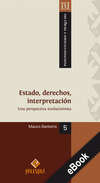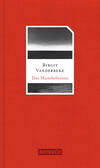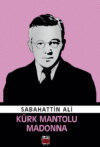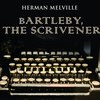Kitabı oku: «The Portrait of a Lady — Volume 2», sayfa 18
“Is it the idea of the harm I may do you?” Osmond asked.
“No; it’s the idea of the good I may do for you. It’s that,” Madame Merle pursued, “that made me so jealous of Isabel. I want it to be my work,” she added, with her face, which had grown hard and bitter, relaxing to its habit of smoothness.
Her friend took up his hat and his umbrella, and after giving the former article two or three strokes with his coat-cuff, “On the whole, I think,” he said, “you had better leave it to me.”
After he had left her she went, the first thing, and lifted from the mantel-shelf the attenuated coffee-cup in which he had mentioned the existence of a crack; but she looked at it rather abstractedly. “Have I been so vile all for nothing?” she vaguely wailed.
CHAPTER L
As the Countess Gemini was not acquainted with the ancient monuments Isabel occasionally offered to introduce her to these interesting relics and to give their afternoon drive an antiquarian aim. The Countess, who professed to think her sister-in-law a prodigy of learning, never made an objection, and gazed at masses of Roman brickwork as patiently as if they had been mounds of modern drapery. She had not the historic sense, though she had in some directions the anecdotic, and as regards herself the apologetic, but she was so delighted to be in Rome that she only desired to float with the current. She would gladly have passed an hour every day in the damp darkness of the Baths of Titus if it had been a condition of her remaining at Palazzo Roccanera. Isabel, however, was not a severe cicerone; she used to visit the ruins chiefly because they offered an excuse for talking about other matters than the love affairs of the ladies of Florence, as to which her companion was never weary of offering information. It must be added that during these visits the Countess forbade herself every form of active research; her preference was to sit in the carriage and exclaim that everything was most interesting. It was in this manner that she had hitherto examined the Coliseum, to the infinite regret of her niece, who—with all the respect that she owed her—could not see why she should not descend from the vehicle and enter the building. Pansy had so little chance to ramble that her view of the case was not wholly disinterested; it may be divined that she had a secret hope that, once inside, her parents’ guest might be induced to climb to the upper tiers. There came a day when the Countess announced her willingness to undertake this feat—a mild afternoon in March when the windy month expressed itself in occasional puffs of spring. The three ladies went into the Coliseum together, but Isabel left her companions to wander over the place. She had often ascended to those desolate ledges from which the Roman crowd used to bellow applause and where now the wild flowers (when they are allowed) bloom in the deep crevices; and to-day she felt weary and disposed to sit in the despoiled arena. It made an intermission too, for the Countess often asked more from one’s attention than she gave in return; and Isabel believed that when she was alone with her niece she let the dust gather for a moment on the ancient scandals of the Arnide. She so remained below therefore, while Pansy guided her undiscriminating aunt to the steep brick staircase at the foot of which the custodian unlocks the tall wooden gate. The great enclosure was half in shadow; the western sun brought out the pale red tone of the great blocks of travertine—the latent colour that is the only living element in the immense ruin. Here and there wandered a peasant or a tourist, looking up at the far sky-line where, in the clear stillness, a multitude of swallows kept circling and plunging. Isabel presently became aware that one of the other visitors, planted in the middle of the arena, had turned his attention to her own person and was looking at her with a certain little poise of the head which she had some weeks before perceived to be characteristic of baffled but indestructible purpose. Such an attitude, to-day, could belong only to Mr. Edward Rosier; and this gentleman proved in fact to have been considering the question of speaking to her. When he had assured himself that she was unaccompanied he drew near, remarking that though she would not answer his letters she would perhaps not wholly close her ears to his spoken eloquence. She replied that her stepdaughter was close at hand and that she could only give him five minutes; whereupon he took out his watch and sat down upon a broken block.
“It’s very soon told,” said Edward Rosier. “I’ve sold all my bibelots!” Isabel gave instinctively an exclamation of horror; it was as if he had told her he had had all his teeth drawn. “I’ve sold them by auction at the Hôtel Drouot,” he went on. “The sale took place three days ago, and they’ve telegraphed me the result. It’s magnificent.”
“I’m glad to hear it; but I wish you had kept your pretty things.”
“I have the money instead—fifty thousand dollars. Will Mr. Osmond think me rich enough now?”
“Is it for that you did it?” Isabel asked gently.
“For what else in the world could it be? That’s the only thing I think of. I went to Paris and made my arrangements. I couldn’t stop for the sale; I couldn’t have seen them going off; I think it would have killed me. But I put them into good hands, and they brought high prices. I should tell you I have kept my enamels. Now I have the money in my pocket, and he can’t say I’m poor!” the young man exclaimed defiantly.
“He’ll say now that you’re not wise,” said Isabel, as if Gilbert Osmond had never said this before.
Rosier gave her a sharp look. “Do you mean that without my bibelots I’m nothing? Do you mean they were the best thing about me? That’s what they told me in Paris; oh they were very frank about it. But they hadn’t seen her!”
“My dear friend, you deserve to succeed,” said Isabel very kindly.
“You say that so sadly that it’s the same as if you said I shouldn’t.” And he questioned her eyes with the clear trepidation of his own. He had the air of a man who knows he has been the talk of Paris for a week and is full half a head taller in consequence, but who also has a painful suspicion that in spite of this increase of stature one or two persons still have the perversity to think him diminutive. “I know what happened here while I was away,” he went on; “What does Mr. Osmond expect after she has refused Lord Warburton?”
Isabel debated. “That she’ll marry another nobleman.”
“What other nobleman?”
“One that he’ll pick out.”
Rosier slowly got up, putting his watch into his waistcoat-pocket. “You’re laughing at some one, but this time I don’t think it’s at me.”
“I didn’t mean to laugh,” said Isabel. “I laugh very seldom. Now you had better go away.”
“I feel very safe!” Rosier declared without moving. This might be; but it evidently made him feel more so to make the announcement in rather a loud voice, balancing himself a little complacently on his toes and looking all round the Coliseum as if it were filled with an audience. Suddenly Isabel saw him change colour; there was more of an audience than he had suspected. She turned and perceived that her two companions had returned from their excursion. “You must really go away,” she said quickly. “Ah, my dear lady, pity me!” Edward Rosier murmured in a voice strangely at variance with the announcement I have just quoted. And then he added eagerly, like a man who in the midst of his misery is seized by a happy thought: “Is that lady the Countess Gemini? I’ve a great desire to be presented to her.”
Isabel looked at him a moment. “She has no influence with her brother.”
“Ah, what a monster you make him out!” And Rosier faced the Countess, who advanced, in front of Pansy, with an animation partly due perhaps to the fact that she perceived her sister-in-law to be engaged in conversation with a very pretty young man.
“I’m glad you’ve kept your enamels!” Isabel called as she left him. She went straight to Pansy, who, on seeing Edward Rosier, had stopped short, with lowered eyes. “We’ll go back to the carriage,” she said gently.
“Yes, it’s getting late,” Pansy returned more gently still. And she went on without a murmur, without faltering or glancing back. Isabel, however, allowing herself this last liberty, saw that a meeting had immediately taken place between the Countess and Mr. Rosier. He had removed his hat and was bowing and smiling; he had evidently introduced himself, while the Countess’s expressive back displayed to Isabel’s eye a gracious inclination. These facts, none the less, were presently lost to sight, for Isabel and Pansy took their places again in the carriage. Pansy, who faced her stepmother, at first kept her eyes fixed on her lap; then she raised them and rested them on Isabel’s. There shone out of each of them a little melancholy ray—a spark of timid passion which touched Isabel to the heart. At the same time a wave of envy passed over her soul, as she compared the tremulous longing, the definite ideal of the child with her own dry despair. “Poor little Pansy!” she affectionately said.
“Oh never mind!” Pansy answered in the tone of eager apology. And then there was a silence; the Countess was a long time coming. “Did you show your aunt everything, and did she enjoy it?” Isabel asked at last.
“Yes, I showed her everything. I think she was very much pleased.”
“And you’re not tired, I hope.”
“Oh no, thank you, I’m not tired.”
The Countess still remained behind, so that Isabel requested the footman to go into the Coliseum and tell her they were waiting. He presently returned with the announcement that the Signora Contessa begged them not to wait—she would come home in a cab!
About a week after this lady’s quick sympathies had enlisted themselves with Mr. Rosier, Isabel, going rather late to dress for dinner, found Pansy sitting in her room. The girl seemed to have been awaiting her; she got up from her low chair. “Pardon my taking the liberty,” she said in a small voice. “It will be the last—for some time.”
Her voice was strange, and her eyes, widely opened, had an excited, frightened look. “You’re not going away!” Isabel exclaimed.
“I’m going to the convent.”
“To the convent?”
Pansy drew nearer, till she was near enough to put her arms round Isabel and rest her head on her shoulder. She stood this way a moment, perfectly still; but her companion could feel her tremble. The quiver of her little body expressed everything she was unable to say. Isabel nevertheless pressed her. “Why are you going to the convent?”
“Because papa thinks it best. He says a young girl’s better, every now and then, for making a little retreat. He says the world, always the world, is very bad for a young girl. This is just a chance for a little seclusion—a little reflexion.” Pansy spoke in short detached sentences, as if she could scarce trust herself; and then she added with a triumph of self-control: “I think papa’s right; I’ve been so much in the world this winter.”
Her announcement had a strange effect on Isabel; it seemed to carry a larger meaning than the girl herself knew. “When was this decided?” she asked. “I’ve heard nothing of it.”
“Papa told me half an hour ago; he thought it better it shouldn’t be too much talked about in advance. Madame Catherine’s to come for me at a quarter past seven, and I’m only to take two frocks. It’s only for a few weeks; I’m sure it will be very good. I shall find all those ladies who used to be so kind to me, and I shall see the little girls who are being educated. I’m very fond of little girls,” said Pansy with an effect of diminutive grandeur. “And I’m also very fond of Mother Catherine. I shall be very quiet and think a great deal.”
Isabel listened to her, holding her breath; she was almost awe-struck. “Think of me sometimes.”
“Ah, come and see me soon!” cried Pansy; and the cry was very different from the heroic remarks of which she had just delivered herself.
Isabel could say nothing more; she understood nothing; she only felt how little she yet knew her husband. Her answer to his daughter was a long, tender kiss.
Half an hour later she learned from her maid that Madame Catherine had arrived in a cab and had departed again with the signorina. On going to the drawing-room before dinner she found the Countess Gemini alone, and this lady characterised the incident by exclaiming, with a wonderful toss of the head, “En voilà, ma chère, une pose!” But if it was an affectation she was at a loss to see what her husband affected. She could only dimly perceive that he had more traditions than she supposed. It had become her habit to be so careful as to what she said to him that, strange as it may appear, she hesitated, for several minutes after he had come in, to allude to his daughter’s sudden departure: she spoke of it only after they were seated at table. But she had forbidden herself ever to ask Osmond a question. All she could do was to make a declaration, and there was one that came very naturally. “I shall miss Pansy very much.”
He looked a while, with his head inclined a little, at the basket of flowers in the middle of the table. “Ah yes,” he said at last, “I had thought of that. You must go and see her, you know; but not too often. I dare say you wonder why I sent her to the good sisters; but I doubt if I can make you understand. It doesn’t matter; don’t trouble yourself about it. That’s why I had not spoken of it. I didn’t believe you would enter into it. But I’ve always had the idea; I’ve always thought it a part of the education of one’s daughter. One’s daughter should be fresh and fair; she should be innocent and gentle. With the manners of the present time she is liable to become so dusty and crumpled. Pansy’s a little dusty, a little dishevelled; she has knocked about too much. This bustling, pushing rabble that calls itself society—one should take her out of it occasionally. Convents are very quiet, very convenient, very salutary. I like to think of her there, in the old garden, under the arcade, among those tranquil virtuous women. Many of them are gentlewomen born; several of them are noble. She will have her books and her drawing, she will have her piano. I’ve made the most liberal arrangements. There is to be nothing ascetic; there’s just to be a certain little sense of sequestration. She’ll have time to think, and there’s something I want her to think about.” Osmond spoke deliberately, reasonably, still with his head on one side, as if he were looking at the basket of flowers. His tone, however, was that of a man not so much offering an explanation as putting a thing into words—almost into pictures—to see, himself, how it would look. He considered a while the picture he had evoked and seemed greatly pleased with it. And then he went on: “The Catholics are very wise after all. The convent is a great institution; we can’t do without it; it corresponds to an essential need in families, in society. It’s a school of good manners; it’s a school of repose. Oh, I don’t want to detach my daughter from the world,” he added; “I don’t want to make her fix her thoughts on any other. This one’s very well, as she should take it, and she may think of it as much as she likes. Only she must think of it in the right way.”
Isabel gave an extreme attention to this little sketch; she found it indeed intensely interesting. It seemed to show her how far her husband’s desire to be effective was capable of going—to the point of playing theoretic tricks on the delicate organism of his daughter. She could not understand his purpose, no—not wholly; but she understood it better than he supposed or desired, inasmuch as she was convinced that the whole proceeding was an elaborate mystification, addressed to herself and destined to act upon her imagination. He had wanted to do something sudden and arbitrary, something unexpected and refined; to mark the difference between his sympathies and her own, and show that if he regarded his daughter as a precious work of art it was natural he should be more and more careful about the finishing touches. If he wished to be effective he had succeeded; the incident struck a chill into Isabel’s heart. Pansy had known the convent in her childhood and had found a happy home there; she was fond of the good sisters, who were very fond of her, and there was therefore for the moment no definite hardship in her lot. But all the same the girl had taken fright; the impression her father desired to make would evidently be sharp enough. The old Protestant tradition had never faded from Isabel’s imagination, and as her thoughts attached themselves to this striking example of her husband’s genius—she sat looking, like him, at the basket of flowers—poor little Pansy became the heroine of a tragedy. Osmond wished it to be known that he shrank from nothing, and his wife found it hard to pretend to eat her dinner. There was a certain relief presently, in hearing the high, strained voice of her sister-in-law. The Countess too, apparently, had been thinking the thing out, but had arrived at a different conclusion from Isabel.
“It’s very absurd, my dear Osmond,” she said, “to invent so many pretty reasons for poor Pansy’s banishment. Why don’t you say at once that you want to get her out of my way? Haven’t you discovered that I think very well of Mr. Rosier? I do indeed; he seems to me simpaticissimo. He has made me believe in true love; I never did before! Of course you’ve made up your mind that with those convictions I’m dreadful company for Pansy.”
Osmond took a sip of a glass of wine; he looked perfectly good-humoured. “My dear Amy,” he answered, smiling as if he were uttering a piece of gallantry, “I don’t know anything about your convictions, but if I suspected that they interfere with mine it would be much simpler to banish you.”
CHAPTER LI
The Countess was not banished, but she felt the insecurity of her tenure of her brother’s hospitality. A week after this incident Isabel received a telegram from England, dated from Gardencourt and bearing the stamp of Mrs. Touchett’s authorship. “Ralph cannot last many days,” it ran, “and if convenient would like to see you. Wishes me to say that you must come only if you’ve not other duties. Say, for myself, that you used to talk a good deal about your duty and to wonder what it was; shall be curious to see whether you’ve found it out. Ralph is really dying, and there’s no other company.” Isabel was prepared for this news, having received from Henrietta Stackpole a detailed account of her journey to England with her appreciative patient. Ralph had arrived more dead than alive, but she had managed to convey him to Gardencourt, where he had taken to his bed, which, as Miss Stackpole wrote, he evidently would never leave again. She added that she had really had two patients on her hands instead of one, inasmuch as Mr. Goodwood, who had been of no earthly use, was quite as ailing, in a different way, as Mr. Touchett. Afterwards she wrote that she had been obliged to surrender the field to Mrs. Touchett, who had just returned from America and had promptly given her to understand that she didn’t wish any interviewing at Gardencourt. Isabel had written to her aunt shortly after Ralph came to Rome, letting her know of his critical condition and suggesting that she should lose no time in returning to Europe. Mrs. Touchett had telegraphed an acknowledgement of this admonition, and the only further news Isabel received from her was the second telegram I have just quoted.
Isabel stood a moment looking at the latter missive; then, thrusting it into her pocket, she went straight to the door of her husband’s study. Here she again paused an instant, after which she opened the door and went in. Osmond was seated at the table near the window with a folio volume before him, propped against a pile of books. This volume was open at a page of small coloured plates, and Isabel presently saw that he had been copying from it the drawing of an antique coin. A box of water-colours and fine brushes lay before him, and he had already transferred to a sheet of immaculate paper the delicate, finely-tinted disk. His back was turned toward the door, but he recognised his wife without looking round.
“Excuse me for disturbing you,” she said.
“When I come to your room I always knock,” he answered, going on with his work.
“I forgot; I had something else to think of. My cousin’s dying.”
“Ah, I don’t believe that,” said Osmond, looking at his drawing through a magnifying glass. “He was dying when we married; he’ll outlive us all.”
Isabel gave herself no time, no thought, to appreciate the careful cynicism of this declaration; she simply went on quickly, full of her own intention “My aunt has telegraphed for me; I must go to Gardencourt.”
“Why must you go to Gardencourt?” Osmond asked in the tone of impartial curiosity.
“To see Ralph before he dies.”
To this, for some time, he made no rejoinder; he continued to give his chief attention to his work, which was of a sort that would brook no negligence. “I don’t see the need of it,” he said at last. “He came to see you here. I didn’t like that; I thought his being in Rome a great mistake. But I tolerated it because it was to be the last time you should see him. Now you tell me it’s not to have been the last. Ah, you’re not grateful!”
“What am I to be grateful for?”
Gilbert Osmond laid down his little implements, blew a speck of dust from his drawing, slowly got up, and for the first time looked at his wife. “For my not having interfered while he was here.”
“Oh yes, I am. I remember perfectly how distinctly you let me know you didn’t like it. I was very glad when he went away.”
“Leave him alone then. Don’t run after him.”
Isabel turned her eyes away from him; they rested upon his little drawing. “I must go to England,” she said, with a full consciousness that her tone might strike an irritable man of taste as stupidly obstinate.
“I shall not like it if you do,” Osmond remarked.
“Why should I mind that? You won’t like it if I don’t. You like nothing I do or don’t do. You pretend to think I lie.”
Osmond turned slightly pale; he gave a cold smile. “That’s why you must go then? Not to see your cousin, but to take a revenge on me.”
“I know nothing about revenge.”
“I do,” said Osmond. “Don’t give me an occasion.”
“You’re only too eager to take one. You wish immensely that I would commit some folly.”
“I should be gratified in that case if you disobeyed me.”
“If I disobeyed you?” said Isabel in a low tone which had the effect of mildness.
“Let it be clear. If you leave Rome to-day it will be a piece of the most deliberate, the most calculated, opposition.”
“How can you call it calculated? I received my aunt’s telegram but three minutes ago.”
“You calculate rapidly; it’s a great accomplishment. I don’t see why we should prolong our discussion; you know my wish.” And he stood there as if he expected to see her withdraw.
But she never moved; she couldn’t move, strange as it may seem; she still wished to justify herself; he had the power, in an extraordinary degree, of making her feel this need. There was something in her imagination he could always appeal to against her judgement. “You’ve no reason for such a wish,” said Isabel, “and I’ve every reason for going. I can’t tell you how unjust you seem to me. But I think you know. It’s your own opposition that’s calculated. It’s malignant.”
She had never uttered her worst thought to her husband before, and the sensation of hearing it was evidently new to Osmond. But he showed no surprise, and his coolness was apparently a proof that he had believed his wife would in fact be unable to resist for ever his ingenious endeavour to draw her out. “It’s all the more intense then,” he answered. And he added almost as if he were giving her a friendly counsel: “This is a very important matter.” She recognised that; she was fully conscious of the weight of the occasion; she knew that between them they had arrived at a crisis. Its gravity made her careful; she said nothing, and he went on. “You say I’ve no reason? I have the very best. I dislike, from the bottom of my soul, what you intend to do. It’s dishonourable; it’s indelicate; it’s indecent. Your cousin is nothing whatever to me, and I’m under no obligation to make concessions to him. I’ve already made the very handsomest. Your relations with him, while he was here, kept me on pins and needles; but I let that pass, because from week to week I expected him to go. I’ve never liked him and he has never liked me. That’s why you like him—because he hates me,” said Osmond with a quick, barely audible tremor in his voice. “I’ve an ideal of what my wife should do and should not do. She should not travel across Europe alone, in defiance of my deepest desire, to sit at the bedside of other men. Your cousin’s nothing to you; he’s nothing to us. You smile most expressively when I talk about us, but I assure you that we, we, Mrs. Osmond, is all I know. I take our marriage seriously; you appear to have found a way of not doing so. I’m not aware that we’re divorced or separated; for me we’re indissolubly united. You are nearer to me than any human creature, and I’m nearer to you. It may be a disagreeable proximity; it’s one, at any rate, of our own deliberate making. You don’t like to be reminded of that, I know; but I’m perfectly willing, because—because—” And he paused a moment, looking as if he had something to say which would be very much to the point. “Because I think we should accept the consequences of our actions, and what I value most in life is the honour of a thing!”
He spoke gravely and almost gently; the accent of sarcasm had dropped out of his tone. It had a gravity which checked his wife’s quick emotion; the resolution with which she had entered the room found itself caught in a mesh of fine threads. His last words were not a command, they constituted a kind of appeal; and, though she felt that any expression of respect on his part could only be a refinement of egotism, they represented something transcendent and absolute, like the sign of the cross or the flag of one’s country. He spoke in the name of something sacred and precious—the observance of a magnificent form. They were as perfectly apart in feeling as two disillusioned lovers had ever been; but they had never yet separated in act. Isabel had not changed; her old passion for justice still abode within her; and now, in the very thick of her sense of her husband’s blasphemous sophistry, it began to throb to a tune which for a moment promised him the victory. It came over her that in his wish to preserve appearances he was after all sincere, and that this, as far as it went, was a merit. Ten minutes before she had felt all the joy of irreflective action—a joy to which she had so long been a stranger; but action had been suddenly changed to slow renunciation, transformed by the blight of Osmond’s touch. If she must renounce, however, she would let him know she was a victim rather than a dupe. “I know you’re a master of the art of mockery,” she said. “How can you speak of an indissoluble union—how can you speak of your being contented? Where’s our union when you accuse me of falsity? Where’s your contentment when you have nothing but hideous suspicion in your heart?”
“It is in our living decently together, in spite of such drawbacks.”
“We don’t live decently together!” cried Isabel.
“Indeed we don’t if you go to England.”
“That’s very little; that’s nothing. I might do much more.”
He raised his eyebrows and even his shoulders a little: he had lived long enough in Italy to catch this trick. “Ah, if you’ve come to threaten me I prefer my drawing.” And he walked back to his table, where he took up the sheet of paper on which he had been working and stood studying it.
“I suppose that if I go you’ll not expect me to come back,” said Isabel.
He turned quickly round, and she could see this movement at least was not designed. He looked at her a little, and then, “Are you out of your mind?” he enquired.
“How can it be anything but a rupture?” she went on; “especially if all you say is true?” She was unable to see how it could be anything but a rupture; she sincerely wished to know what else it might be.
He sat down before his table. “I really can’t argue with you on the hypothesis of your defying me,” he said. And he took up one of his little brushes again.
She lingered but a moment longer; long enough to embrace with her eye his whole deliberately indifferent yet most expressive figure; after which she quickly left the room. Her faculties, her energy, her passion, were all dispersed again; she felt as if a cold, dark mist had suddenly encompassed her. Osmond possessed in a supreme degree the art of eliciting any weakness. On her way back to her room she found the Countess Gemini standing in the open doorway of a little parlour in which a small collection of heterogeneous books had been arranged. The Countess had an open volume in her hand; she appeared to have been glancing down a page which failed to strike her as interesting. At the sound of Isabel’s step she raised her head.
“Ah my dear,” she said, “you, who are so literary, do tell me some amusing book to read! Everything here’s of a dreariness—! Do you think this would do me any good?”
Isabel glanced at the title of the volume she held out, but without reading or understanding it. “I’m afraid I can’t advise you. I’ve had bad news. My cousin, Ralph Touchett, is dying.”




















